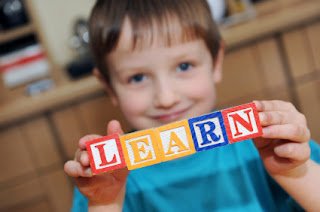 |
| Image from: http://www.relevantchildrensministry.com |
As children, we dream about being
the president, living in the white house, flying around the country in the Air
Force One. We all have this dream of being the top guy in the one of the world great dream however, this presidential dream caught up with reality relatively quick. Similarly, I fall into a similar imaginary
parallel as I was first expose to global issues. At around the age of 14, I was exposed to globalization and world outside of my own bubble. Upon
hearing stories from missionaries at church, I dream of feeding the hungry, building schools and shelters. Little did I know back then, my dream of tackling
so many global issues that are way beyond my powerless self. The ideology of “solving” global issues is
long gone .However I do believed that there are many lessons to be learn from
the naive childhood dreams.
Before diving into the lessons we can learn from our childhood, I would like to begin with a little
introduction of myself. I am Royce Kok, a verdant freshman at Lehigh University.
I think I am majoring in Industrial Engineering however, that may change.
(Yeah, great, now we have a college freshman who does not even know what she
wants to do with her own life yet and she wants to go abroad to help other!)
Yep, that's me!
 |
| Side track: This is a picture of my beautiful GC cohort nine. |
Well,
originally I signed up for this class because I want to be involved in the
Caring for Cambodia(CFC) project. I learned about Caring for Cambodia through Global Citizenship (GC) retreat and I become very interested in it. However, as plans usually deviates, CFC needs
computer engineer at this developmental stage and I am not one.
Now,
I am a proud member of the Haiti- Lakes project. Haiti goes through period of drought
and period of rain. There are now artificial lakes in Haiti that acts as reservoir
for water. With this new addition, there are endless possibilities. These new
possibility includes (but not limited to) year-round agriculture business, sanitary
water supply, and fishing.
I
embrace change, so I am completely fine with the switch from Cambodia to Haiti. The motif of this class is to assist these organizations and provide them with the expertise we have as college students.
*Mini lesson: In philanthropic effort, the willingness to embrace change is very important. Our overarching goal is to help others so the interest of the NGO, host country and community should be placed before our interest. In addition, in participating in field work and collaborating with the
communities, flexibility is crutial. For example, the host
country might not have the same electrical supply as we do here in the United
States. We have to alter the project. (Sometimes
slightly but it could be starting from the scratch).
After an introduction about myself, my role and project in this class. Let's get back to childhood business. Sustainable Development Solutions (ES297) is a pilot program at Lehigh University. Our class is then categorized into project groups. This projects is to work with the local community and NGO to find out in what way we could help them. In addition, we will have a chance to visit the host country. Most of the projects are like infants, some are farther ahead but all in developmental stage. However, for Haiti, we are infants so we should learn like the way they learn.
Lesson 1:
Children learn by imitation.
Actions
such as talking and walking are learning through imitation. Students of
sustainable development that wants to help the community needs to “mimicking the
way of live” of the community. This way, student will learn to put themselves
in the position of the communities.
Lesson
2: Children are creative.
 |
| This is a picture of me learning how to walk. |
Children
think creatively, they solve problem unconventionally. Although we might not
always want to be too unconventional in implementing or while working on the
project, many brilliant ideas are grounded upon unconventional ideas.
Lesson
3: Children are not afraid of failure
Children
are not afraid to fail. While they are learning how to walk, they fall multiple
times a day. They somehow manage to stand back up. We need to learn the
persistence of children.
Lesson
4: Children learn through trial and error
While
children putt puzzles together, they will try to put the puzzle pieces in one
spot. However, through measurements, they quickly learn that this piece do not
fit here. As for us, there is not a lot of room to condone error in the actual
work site or host country. However, at Lehigh, while we are doing project stimulation,
it is laudable to come up with a prototype for testing purposes and to learn
through error.
Lesson
5: Children play fair.
 |
| Image from: https://www.iru.org |
Children
share when they play. In terms of sustainable development, student need to properly
develop their project in a way that is “fair” to the three aspect of
sustainable development, which is the social well being social inclusion, and environmental
protection.
Another
central phrase around this class that we will use like a child would be “I don’t know.” Please do not be
offended by that, we are merely being honest. The class and the groups will works
hard to find the “solution”. However, there will be times where we will not
know what we are doing, we will try really hard to understand the product from
their cultural perspective and we will try really hard to DO NO HARM. Please do
not be discouraged by the project we are starting, I invite you dive in to be part of
our journey as we become the pioneers to many who comes after us.



